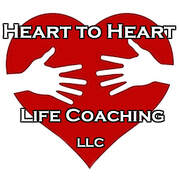Teenage Stress
The teenage years can be some of the most awesome and challenging times of life! The emotional and hormonal changes can make everything feel exaggerated and out of balance which can feel like a roller coaster ride on a rainy day.
A Los Angeles Times report showed that teens have a harder time saying no to drugs and/or pier pressure when they lack family bonding. Many teens who take drugs or use alcohol say they don't feel loved. They feel detached and afraid. It doesn't necessarily mean that they aren't loved but it's how they feel. Other teens say they are escaping a sense of hopelessness about life. These aren't the only reasons teenagers use drugs and alcohol, but they are major factors that teens themselves are reporting. Divorce has also taken its toll on family bonding. Studies show that nationwide, 60% of youngsters feel they are to blame in a divorce and feel rejected by at least one parent; 50% live in families where at least one of the divorced parents stayed angry. One third of these children never see one of their parents again after divorce. Teenagers often go to school or out into the world carrying emotional baggage from unresolved issues from home.
We can't afford to ignore the statistics on what is happening in today's society. Basic survival is tougher, requiring much more energy - both parents needing jobs, children being raised at day care, 24% of all children living with only one parent who has to work, keep house and pay the bills. A recent Los Angeles Times poll revealed that parents feel frustrated and guilty because they lack time to supervise their children. 78% of parents polled gave themselves a C, D or F grade in teaching their children moral values. Another national survey found that 1 in 5 teenagers had not had a 10-minute conversation with a parent in the past month. Overall, parents in today's world spend 10-12 fewer hours per week with their teenagers than parents did in the 60's. The irony is that those of us who were teenagers in the 60's realize how much less time we spent with our parents compared to previous generations.
If these statistics don't apply, our child could also get involved with someone who does come from these realities…..which will affect them and their children if any.
So how can busy parents and adults bond with teens and inject more quality care into their already demanding schedules? Time may not always be the real issue. It's what parents and adults choose to do with the time they have. Most parents do care, but their care gets diluted by their own lack of mental and emotional self-management. Becoming "Heart Smart" is an effective facilitator for overcoming this dilemma. Learning how to listen to each other from the heart with sincere attention is the first step. Most people just listen to each other from the head, with their own thoughts and emotions running through their minds at the same time. This goes for teenagers and adults as well. This causes gaps in communication, leading to judgments, resentments and distance between people.
Working with teens with self-discovery creates a joint venture between their head and their heart so that they can manage their life and be who they really are. When their head and hearts are out of sync, it leads to insecurity, inner turmoil and conflict with others. When their head and hearts are in balance, it leads to creative problem-solving, self-security and esteem.
Sherée is helping teens understand and manage their reactions to life and make their own healthy, positive choices on how to deal with relationships, temptations, resentments and boredom. But also helping teen and parents relationships - bridging the communication gaps.
A Los Angeles Times report showed that teens have a harder time saying no to drugs and/or pier pressure when they lack family bonding. Many teens who take drugs or use alcohol say they don't feel loved. They feel detached and afraid. It doesn't necessarily mean that they aren't loved but it's how they feel. Other teens say they are escaping a sense of hopelessness about life. These aren't the only reasons teenagers use drugs and alcohol, but they are major factors that teens themselves are reporting. Divorce has also taken its toll on family bonding. Studies show that nationwide, 60% of youngsters feel they are to blame in a divorce and feel rejected by at least one parent; 50% live in families where at least one of the divorced parents stayed angry. One third of these children never see one of their parents again after divorce. Teenagers often go to school or out into the world carrying emotional baggage from unresolved issues from home.
We can't afford to ignore the statistics on what is happening in today's society. Basic survival is tougher, requiring much more energy - both parents needing jobs, children being raised at day care, 24% of all children living with only one parent who has to work, keep house and pay the bills. A recent Los Angeles Times poll revealed that parents feel frustrated and guilty because they lack time to supervise their children. 78% of parents polled gave themselves a C, D or F grade in teaching their children moral values. Another national survey found that 1 in 5 teenagers had not had a 10-minute conversation with a parent in the past month. Overall, parents in today's world spend 10-12 fewer hours per week with their teenagers than parents did in the 60's. The irony is that those of us who were teenagers in the 60's realize how much less time we spent with our parents compared to previous generations.
If these statistics don't apply, our child could also get involved with someone who does come from these realities…..which will affect them and their children if any.
So how can busy parents and adults bond with teens and inject more quality care into their already demanding schedules? Time may not always be the real issue. It's what parents and adults choose to do with the time they have. Most parents do care, but their care gets diluted by their own lack of mental and emotional self-management. Becoming "Heart Smart" is an effective facilitator for overcoming this dilemma. Learning how to listen to each other from the heart with sincere attention is the first step. Most people just listen to each other from the head, with their own thoughts and emotions running through their minds at the same time. This goes for teenagers and adults as well. This causes gaps in communication, leading to judgments, resentments and distance between people.
Working with teens with self-discovery creates a joint venture between their head and their heart so that they can manage their life and be who they really are. When their head and hearts are out of sync, it leads to insecurity, inner turmoil and conflict with others. When their head and hearts are in balance, it leads to creative problem-solving, self-security and esteem.
Sherée is helping teens understand and manage their reactions to life and make their own healthy, positive choices on how to deal with relationships, temptations, resentments and boredom. But also helping teen and parents relationships - bridging the communication gaps.
Building a joint venture between your head and your heart to "Become Your True Self"
Consider making an appointment with Heart to Heart Life Coaching.
Consider making an appointment with Heart to Heart Life Coaching.






